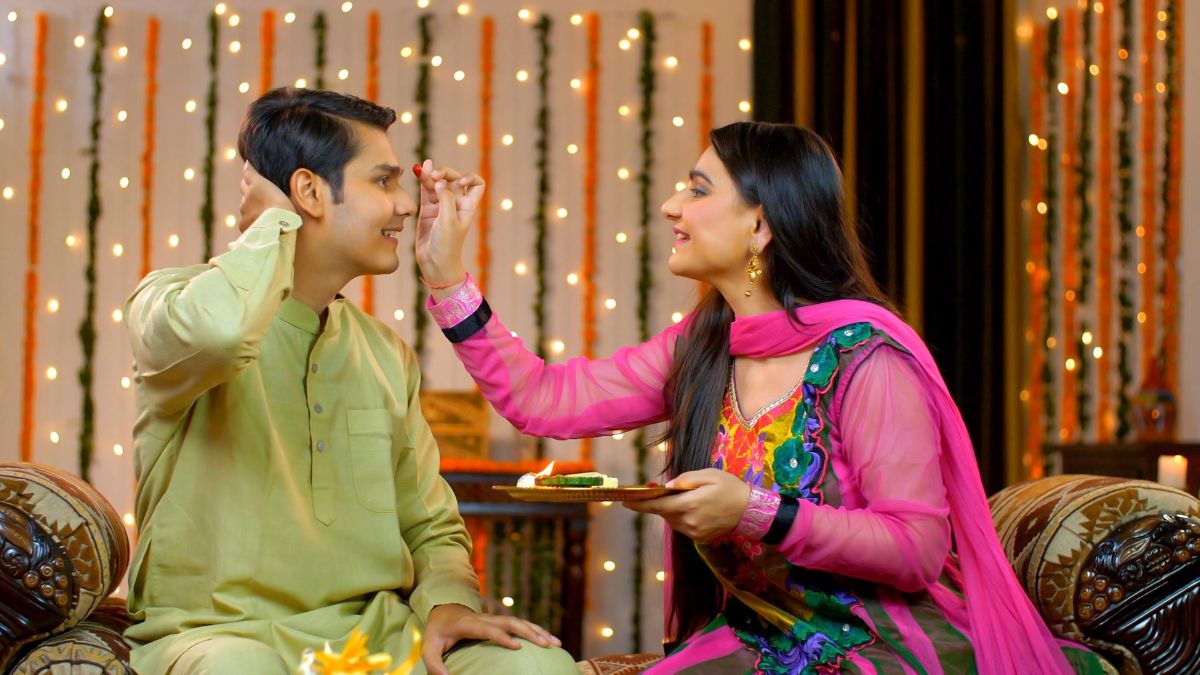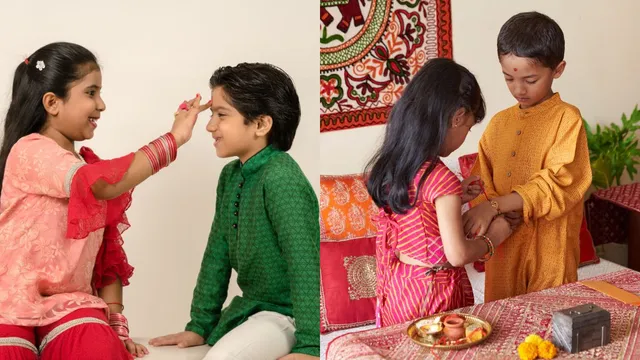- By Prerna Targhotra
- Sat, 02 Nov 2024 10:29 AM (IST)
- Source:JND
Bhai Dooj And Raksha Bandhan: India celebrates two different occasions to signify the special bond between brothers and sisters, Raksha Bandhan and Bhai Dooj. But what is the difference between them? Bhai Dooj and Raksha Bandhan are two revered festivals in the Hindu calendar that celebrate the sacred bond between brothers and sisters, evoking feelings of affection, gratitude and protection.
Although sibling devotion and affection are shared themes in both festivals, their historical roots, mythical importance and ritualistic customs are different. Raksha Bandhan is typically celebrated on the day of the full moon in the month of Shravan, while Bhai Dooj is usually commemorated on the second day following Diwali. The significance of brother-sister bonds and familial ties in Indian culture is emphasised by the distinctive stories and traditions of these festivals. Let’s help you understand the difference between Bhai Dooj and Raksha Bandhan more clearly.
Differences Between Bhai Dooj And Raksha Bandhan
Origin: Bhai Dooj originates from the legend of Lord Krishna's visit to his sister Subhadra after defeating the demon Narakasura, while Raksha Bandhan is rooted in the tale of King Bali and Goddess Lakshmi.
Date: Bhai Dooj is celebrated on the second day after Diwali, whereas Raksha Bandhan falls on the full moon day of the Shravan month.
Rituals: In Bhai Dooj, sisters apply a tilak to their brothers' foreheads and pray for their long life, whereas in Raksha Bandhan, sisters tie a rakhi (a sacred thread) around their brothers' wrists, symbolising protection and care.
Significance: Bhai Dooj emphasises the sister's prayer for her brother's well-being, while Raksha Bandhan highlights the brother's promise to protect his sister.

Bhai Dooj And Raksha Bandhan (Image Credits: Canva)
Rituals Of Bhai Dooj: On Bhai Dooj, sisters pray for their brothers' long life and prosperity as they apply a tilak of vermilion, sandalwood or kajal on their brothers' foreheads to start the ceremony. To ward off evil spirits, the sister then performs an aarti, waving a lit diya or lamp. Then, as a token of their love and gratitude, the brothers give their sisters gifts. The siblings' lifetime bond is strengthened and reaffirmed as they finally eat a sweet supper together.
Rituals Of Raksha Bandhan: On Raksha Bandhan, sisters and brothers celebrate their special bond with one another. Raksha Bandhan's heartfelt ceremony commences with sisters preparing intricately designed rakhis that embody protection and love. They then decorate their brothers' wrists with these sacred threads, accompanied by prayers for their well-being and prosperity. In return, brothers vow to safeguard their sisters, sealing the promise with gifts and affection. The ritual concludes with an aarti, performed by the sister to ward off evil spirits and invoke divine blessings.
Bhai Dooj and Raksha Bandhan serve as poignant reminders of the profound bond between brothers and sisters, transcending geographical and cultural boundaries. By understanding the distinct origins, rituals and significance of these festivals, we can appreciate the richness of Indian tradition and strengthen our familial ties.
ALSO READ: Bhai Dooj 2024: 5 Thoughtful Gift Ideas To Surprise Your Sister With On This Festival
ALSO READ: Bhai Dooj 2024: 7 Zodiac Sign Pairs That Prove To Be The Best Brother-Sister Duo

